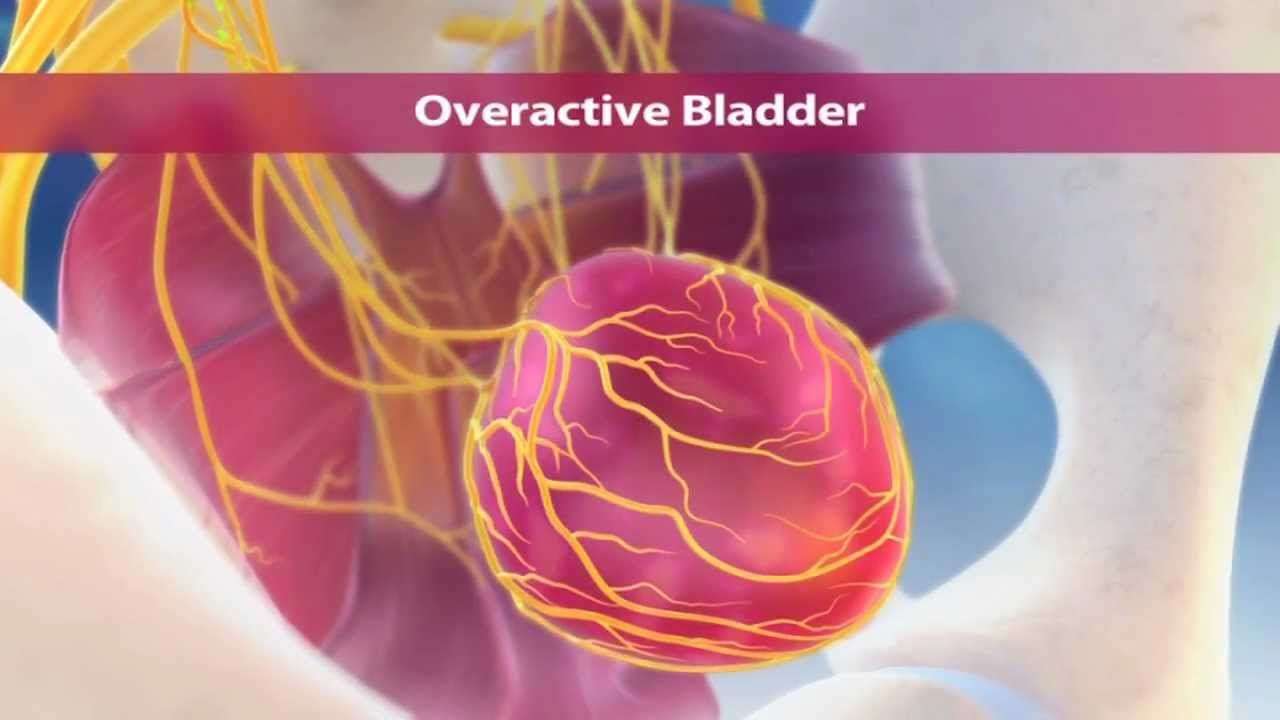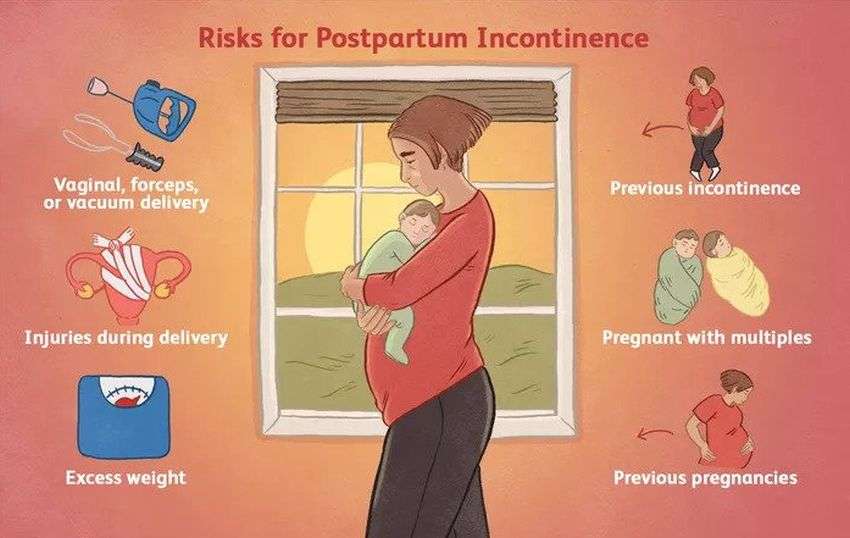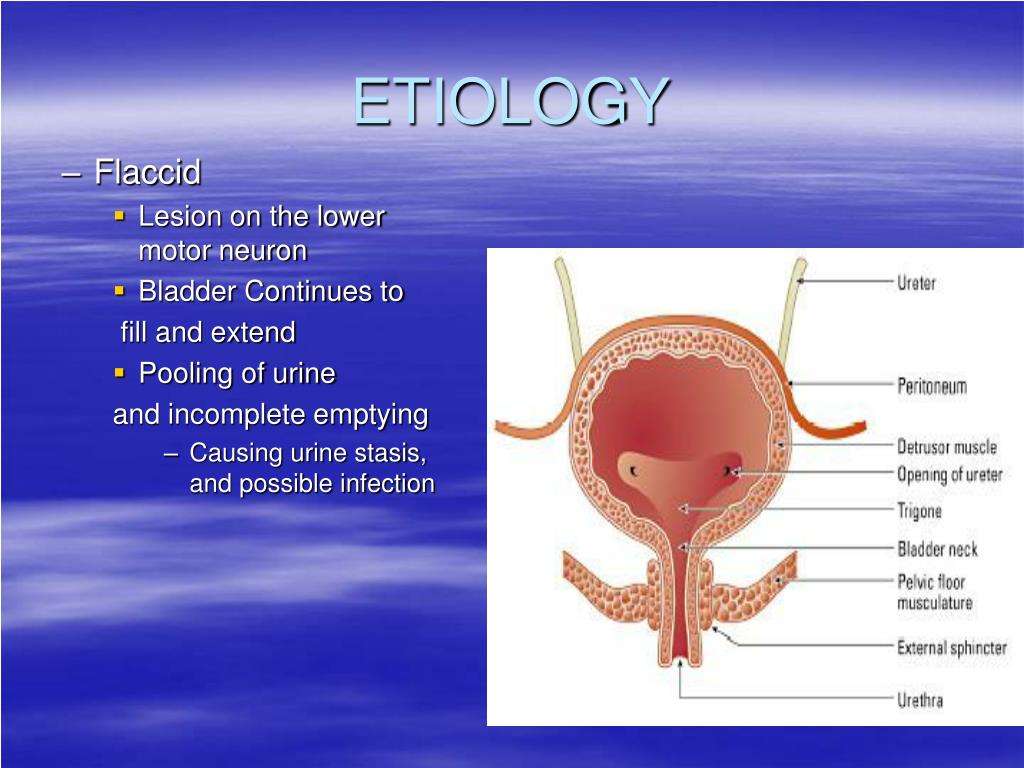Causes Of Bladder And Bowel Problems
Some types of cancer treatment can cause bladder and bowel side effects. These side effects are common after pelvic radiotherapy or treatment for bowel cancer. They may also be caused by the drugs you are taking as part of your treatment for cancer.
- passing urine more often than usual
- passing urine during the night
- a burning feeling when you pass urine
- a feeling that you are not able to wait when you need to pass urine
- blood in your urine
- leaking small amounts of urine .
Contact the hospital straight away if:
- your symptoms get worse
- you have a high temperature
- you feel you cannot pass urine.
Your healthcare team may ask you for a urine sample to check if you have an infection. An infection is a common cause of symptoms and is easy to treat. If the problems do not improve within a few weeks, they may arrange tests. Or they may get more advice for you from a continence specialist.
People often feel embarrassed talking about bladder problems. But if you tell your team, they can help, and it is usually possible to improve it.
- loose stools or diarrhoea
- hard stools or constipation
- needing to empty your bowel urgently
- cramping pains in your tummy or back passage
- passing a lot of wind.
What Is Urinary Incontinence
Urinary incontinence is the loss of bladder control, ranging from some leaking to complete loss of bladder control. Symptoms may include pain, increased urgency, and urinary frequency. Urinary incontinence and its symptoms can be caused by a number of factors. However, they are typically caused by damage to the nerves and muscles that control urinary function during primary treatment for prostate cancer.
There are several types of incontinence, the most common of which are stress incontinence and urge incontinence:
- Stress incontinence is the involuntary leakage of urine when coughing, sneezing, straining, or doing anything that puts stress on the abdomen. This is the most common type about prostate cancer survivors. Some people with severe stress incontinence have nearly constant urine loss .
- Urge incontinence occurs when you feel the urge to urinate but cannot make it to the toilet in time. This is generally due to bladder spasms and often responds to medical therapy.
Urinary incontinence may be short or long term as a result of treatment or the cancer. Most men experience quick improvement over the first several months. However, there are ways to manage long-term incontinence and live a full life.
Urinary Incontinence In Dogs
A dog is incontinent when they lose control of their bladder and are no longer able to hold their pee. Bladder leaks and urination problems can vary in both severity and frequency. Depending on the cause, a pet may struggle with incontinence routinely or only on occasion. Even the time of day can impact a dogs urination problems, many older pets have a difficult time holding their pee all night. Nighttime accidents are common in senior dogs as their bladders weaken as they age.
Recommended Reading: What Age Can You Get Bladder Cancer
How Can I Manage Incontinence At Home
Incontinence can be uncomfortable and disruptive. It can cause sleeping problems, make you feel ashamed or angry, or affect your daily life in other ways. In addition to working with your health care team to find the best treatment, there are things you can do at home to help make incontinence better or more comfortable.
-
Limit how much you drink, especially coffee and alcohol. Avoid foods that can irritate the bladder, including dairy products, citrus fruits, sugar, chocolate, soda, tea, and vinegar.
-
Go to the bathroom right before bedtime and any vigorous activity.
-
Wear an absorbent pad inside your underwear or disposable incontinence underwear.
-
Maintain a healthy weight. Extra weight can put pressure on the bladder and muscles that support it.
-
Go to the bathroom regularly each day. Do not wait too long or put off going.
-
Quit smoking. Nicotine can irritate the bladder. It can also make you cough and leak urine.
-
Do Kegel exercises. Ask your health care team about doing Kegel exercises at home. They can make your bladder stronger. To do Kegel exercises, first tighten the muscles you use to stop the flow of urine. Then, relax those muscles. Repeat the exercise several times. During this exercise, relax the muscles in your belly, buttocks, and thigh.
Finally, it can help to find support. Talk with your health care team or join a support group for people with bladder problems. It can help you feel better to know that other people are also dealing with incontinence.
Demographic And Clinical Characteristics Of Study Participants

All but one of the studies reported mean age of the sample which ranged from 36 to 62 years. Eight of these studies also reported age range women as young as 27 years, , , , and as old as 91 years were included. Three studies included only women who were 50 years of age or younger at diagnosis and one study included only women who were 40 years of age or younger at diagnosis. Fourteen studies provided race and/or ethnicity information for participants. Across these studies, a mean of 84% of women were classified as white and a mean of 17% were classified as black or African American .
Don’t Miss: Clamp Foley For Bladder Training
What If The Incontinence Does Not Get Better
In these cases, you should see an incontinence provider to talk about available treatments. They will ask you questions about your health history, the symptoms you are having, the number of pads you use, and what treatments you have already had. They will also do an exam and may ask for a urine sample. They may do a bladder scan to see how much urine is in your bladder.
The incontinence specialist will likely talk about conservative treatments at first. More pelvic floor exercises might be recommended. You may also be given a biofeedback machine that allows you to see how strong your pelvic floor muscles are. The specialist may talk about medication options.
Prevalence And Severity Of Urinary Symptoms
Ten of the 16 studies reported data related to the prevalence of urinary symptoms. In general, the rate of women reporting any type of urinary symptom ranged from a low of 12% reporting burning or pain on micturition in a study of women receiving endocrine therapy for early stage or metastatic breast cancer to a high of 58% reporting difficulty with bladder control at other times in a study of the psychometric properties of a BCPT-derived checklist for measuring hormone-related symptoms in breast cancer survivors. Across those studies assessing bladder control using items from the BCPT Symptom Checklist,, , , , , , a mean of 37% reported difficulty with bladder control either in general, when laughing or crying or at other times. In two studies,, a mean of 34% reported urinary problems.
Recommended Reading: Can A Bladder Infection Cause Incontinence
What Bladder Problems May Occur As Side Effects Of Cancer Treatment
Irritation of the lining of the bladder is called cystitis. This condition is commonly caused by a urinary tract infection, where bacteria have infected your bladder. However, it is also a side effect of some cancer treatments. Cancer patients in particular are at increased risk of developing a more severe form of cystitis called hemorrhagic cystitis. This condition may occur during treatment, immediately following treatment or months after treatment. Hemorrhagic cystitis can be a very serious condition leading to significant bleeding and/or life-threatening infection.
What Types Of Incontinence Can Happen After Rp
There are two main types of urinary incontinence after RP:
- Urgency incontinence is when you feel the need or urge to urinate but cannot make it to the toilet in time. This is often due to bladder spasms and medication can help. This type of incontinence is caused by changes in the way the bladder behaves after surgery.
- Stress urinary incontinence is leakage of urine with movement or effort and can happen when you cough, sneeze, lift something heavy, change position, or exercise. This type of incontinence may be caused by damage to your external sphincter muscle. Almost all men will have some degree of SUI right after their urinary catheter is taken out. A urinary catheter is placed short term to collect urine during and while recovering from surgery. You may be taught how to do pelvic floor exercises to help with urinary control.
Read Also: Can Men Get Bladder Infections
Bleeding In Cancer Patients And Its Treatment: A Review
Candice Johnstone1, Shayna E. Rich2
1Department of Radiation Oncology, , USA
Contributions: Conception and design: C Johnstone Administrative support: SE Rich Provision of study materials or patients: None Collection and assembly of data: C Johnstone Data analysis and interpretation: All authors Manuscript writing: All authors Final approval of manuscript: All authors.
Correspondence to:
Keywords: Epistaxis hemoptysis hematochezia hematuria hematemesis vaginal hemorrhage melena
Submitted Jun 12, 2017. Accepted for publication Sep 20, 2017.
doi: 10.21037/apm.2017.11.01
Causes Of Bowel Incontinence In Dogs
There are many reasons why a dog may lose control of their bowel movements. The most common causes are those that impact a dogs rectum or sphincter. Diseases that impact the rectum make it difficult for a dog to store their poop internally which causes their stool to leak out of their body. Dogs with sphincter incontinence struggle to keep their sphincter closed which means they can no longer hold their poop in.
- Inflammatory bowel disease
Dont Miss: Does Prostate Cancer Spread To Bladder
You May Like: What Can I Drink For Overactive Bladder
Try Pelvic Floor Physical Therapy
Pelvic floor physical therapy can help you reconnect with your body after treatment and start addressing issues like urinary incontinence and pelvic pain. Rachel says pelvic floor PT isnt always the end-all solution, but it can be a great option to improve your symptoms. You can start your PT search here.
Search And Selection Strategy

The identification of relevant studies began with electronic searches of English language journal articles in Medline, PsycINFO, and CINAHL from 1990 through June 2010. The MeSH search terms used were breast neoplasms and menopause. The first two authors separately screened study abstracts based on two eligibility criteria. The first was that each study must have been published in a peer-reviewed English language journal. The second was that each study had to report on the quantitative assessment of any urinary symptom in the context of menopausal symptoms and breast cancer. Articles that reported menopausal symptoms but that did not include urinary symptoms as part of the constellation of symptoms were excluded. Similarly, articles involving qualitative assessments of menopausal symptoms in women with breast cancer and reviews of existing research that summarized results of published studies on menopause in women with breast cancer were excluded. Reference lists from studies retrieved also were reviewed to ensure all possible studies were identified.
Also Check: Bladder Cancer Symptoms Mayo Clinic
Bladder Incontinence In Women
Bladder incontinence is more common in women than in men. Other than the possible causes listed above, some things that may increase risk of bladder incontinence in women are:
- Changes to urinary or vaginal tissue from hormone therapy, surgery, chemotherapy, or targeted therapy
- Hormonal changes from menopause
- Pelvic prolapse – the bladder, uterus, and or rectum may slip backward or downward into the vaginal canal because of weak pelvic wall muscles
- Pregnancy
- Hysterectomy
What Are The Different Surgeries For Incontinence
There are three main types of surgery for men who have incontinence after an RP:
Don’t Miss: How To Relieve Bladder Infection
Ways To Manage Incontinence
- Talk to your surgeon or GP about available treatments. They may refer you to the hospital continence nurse or physiotherapist, who can suggest exercises to strengthen the pelvic floor muscles.
- Call the National Continence Helpline on 1800 33 00 66 to talk to a continence nurse about continence aids, if needed.
- Find out the location of toilets near where you are. Visit toiletmap.gov.au or download the National Public Toilet Map app from the App Store or .
How Can Radiation Therapy After Prostatectomy Affect Incontinence
Some men need radiation after a prostatectomy. This treats the “prostate bed” . Some normal tissue will receive a low dose of radiation, including the external urinary sphincter. The radiation may irritate the external sphincter, urethra, and bladder during radiation therapy and for a short time after. This can lead to worsening incontinence that often gets better in the weeks to months after radiation. Some men may have more incontinence in the months to years after radiation therapy due to the buildup of scar tissue. This can cause the external sphincter to not open and close as it should.
Don’t Miss: What Doctor To See For Bladder Infection
Severe Oab Symptoms And Complete Loss Of Bladder Control
My case is rather extreme as I go through approximately 4-10 diapers per day sometimes even more than that. It really just depends on the day. I do drink a lot of water because Im on a medication that causes extreme thirst. Approx 3-4 liters per day. I usually lose complete control of my bladder just about every time the urge hits. And it often hits out of nowhere. I also suffer from my bladder not fully evacuating. Meds dont work. The Botox injections only help for a short time and very little at that. Im only 38 years old and have struggled with OAB for approximately 10 years. I get so embarrassed because a lot of times diapers wont hold enough when I lose full control and it leaks considerably and through my clothes.
Path To Improved Health
Ask your doctor about starting a bladder training program. He or she may ask you to keep a diary. You can use the diary to record how much and how often you urinate. This information will help your doctor create a plan thats right for you.
Three bladder training methods are listed below. Your doctor may recommend 1 or more of these methods to help control your incontinence.
Keep in mind it may take 3 to 12 weeks of bladder training to see results. During your training program, your doctor may have you keep track of the number of urine leaks you have each day. This will help you and your doctor see if bladder training is helping. Dont be discouraged if you dont see immediate results or if you still experience some incontinence.
Also Check: Doterra Oils For Bladder Infection
Treatments For Urgency Incontinence
Urgency incontinence is when you get the urge to go, and if you dont make it to a bathroom, your bladder will empty. It can have serious effects on your life and your work.
Experts dont know what causes urgency incontinence, but there are different ways to approach it. First we start with behavioral changes, which vary based on your situation. Steps could include:
-
Weight loss again, losing even a small amount of weight can help.
-
Avoiding excess fluids. If youre having trouble sleeping, we talk about limiting fluids before bedtime so sleep is less interrupted.
-
Time voiding, which is retraining the bladder. If the patient is in the bathroom every hour, well slowly lengthen that interval so theyre in the bathroom less often.
-
Pelvic floor exercises, with help from a physical therapist.
-
Changing your diet. I review a list of bladder irritants: coffee, chocolate, alcohol, spicy foods, and other things. We have patients skip those foods and drinks for a week or two and see what their urgency or frequency is like.
If behavioral changes dont help, there are other options to explore. We can try certain medications that relax your bladder muscles and prevent leakage. Botox, injected into the muscles of the bladder, can help some patients temporarily. And there are several medications we can try, including anticholinergics, which block the impulse to urinate. This can help you get more sleep at night.
What Is Urinary Incontinence Symptoms Causes Diagnosis Treatment And Prevention

Urinary incontinence , the involuntary loss of urine, is a very common condition that no one wants to talk about. Because of the stigma that surrounds it, many people are too humiliated to seek help. But most conditions that cause UI can be corrected with medical or alternative interventions.
Occurring much more often in women than men, UI happens when the muscles in the bladder that control the flow of urine contract or relax involuntarily, resulting in leaks or uncontrolled urination. UI itself is not a disease, but it can be a symptom of an underlying medical issue.
Dont Miss: How To Get Rid Of A Bladder Infection Without Antibiotics
Recommended Reading: Ways To Help Overactive Bladder